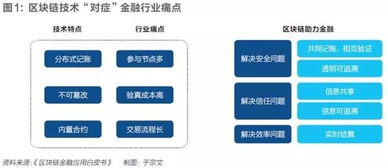Blockchain technology has transcended its origins in cryptocurrencies to find applications across various industries. Its decentralized and immutable nature offers solutions to numerous challenges faced by businesses and organizations. Let's explore some typical use cases of blockchain technology through illustrated examples.
*Illustration: A network of interconnected blocks representing each stage of the supply chain.*
Blockchain technology ensures transparency and traceability in supply chain management. Each block contains data about a specific transaction or event, such as the origin of raw materials, production processes, and delivery schedules. This transparency helps to identify inefficiencies, reduce fraud, and enhance accountability throughout the supply chain.
*Illustration: Digital IDs linked to a blockchain, providing secure and tamperproof identity verification.*
Blockchainbased digital identity verification systems offer a secure and efficient way to manage personal information. Individuals can control access to their data, reducing the risk of identity theft and unauthorized use. Moreover, this technology enables seamless verification processes across various platforms and services, improving user experience while ensuring privacy.
*Illustration: Contracts represented as selfexecuting code on a blockchain.*
Smart contracts automate and enforce the terms of agreements between parties without the need for intermediaries. By leveraging blockchain technology, these contracts execute automatically when predefined conditions are met, eliminating the need for manual intervention and reducing the risk of fraud or manipulation. Smart contracts find applications in diverse fields such as real estate, insurance, and legal agreements.
*Illustration: Secure voting ballots recorded on a blockchain ledger.*
Blockchainbased voting systems enhance the integrity and transparency of elections by providing a tamperresistant record of votes. Each vote is encrypted and recorded on the blockchain, ensuring anonymity and preventing tampering or manipulation. This technology can increase voter participation, streamline the counting process, and mitigate concerns about election fraud.
*Illustration: Secure sharing of medical records on a blockchain network.*
In healthcare, blockchain technology facilitates secure and interoperable sharing of patient data among healthcare providers, researchers, and patients themselves. By maintaining a decentralized and immutable ledger of medical records, blockchain ensures data integrity, privacy, and accessibility. Patients have greater control over their health information, leading to improved care coordination and outcomes.
*Illustration: Digital assets timestamped and protected on a blockchain.*
Blockchain enables creators to timestamp their creative works and establish ownership rights in a decentralized manner. By recording digital assets such as patents, copyrights, and trademarks on the blockchain, creators can prove the authenticity and ownership of their intellectual property without relying on intermediaries. This helps to prevent plagiarism, piracy, and unauthorized use of intellectual property.
Blockchain technology continues to revolutionize various industries by offering secure, transparent, and efficient solutions to complex problems. From supply chain management to digital identity verification, smart contracts, voting systems, healthcare data management, and intellectual property protection, blockchain's potential is vast and transformative. Embracing blockchain innovation can lead to enhanced trust, efficiency, and accountability across diverse sectors.

*Disclaimer: The illustrations provided are for conceptual purposes only and may not accurately represent specific blockchain implementations in practice.*
文章已关闭评论!
2024-11-26 07:44:57
2024-11-26 07:43:32
2024-11-26 07:42:15
2024-11-26 07:41:05
2024-11-26 07:39:40
2024-11-26 07:38:34
2024-11-26 07:37:25
2024-11-26 07:36:01